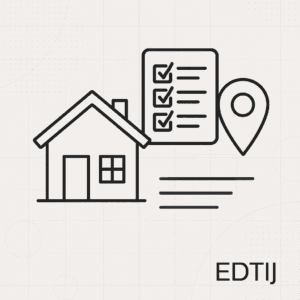E-Commerce in Panama: Requirements, Registration, and Legal Compliance

Panama’s digital market is rapidly expanding, making it crucial for entrepreneurs, startups, and SMEs to understand the country’s e-commerce regulations. The Directorate General of Electronic Commerce (DGCE), operating under the Ministry of Commerce and Industry (MICI), is the authority overseeing this sector.
Complying with the Law 51 of 2008, which governs electronic documents and digital signatures, is essential for ensuring legal certainty, consumer confidence, and transparency in online transactions.
Legal Framework and Supervising Authority
Law 51 of July 22, 2008, establishes the legal framework for electronic documents and digital signatures, granting them the same validity as physical contracts if they meet integrity and authenticity standards.
The DGCE monitors the registration and licensing of online businesses, supervises privacy policies, and ensures that platforms comply with technical and legal standards for data protection and digital transactions.
Legal Requirements for Operating an E-Commerce Business in Panama
Any business offering e-commerce services in Panama must meet specific legal and technical requirements under the DGCE’s guidelines:
- Public Registry and Business License: Every company must be registered with Panama’s Public Registry and hold a valid Notice of Operations issued by the MICI.
- DGCE Registration: Businesses must register their websites with the DGCE to operate legally under national e-commerce regulations.
- Business Identification Disclosure: Websites must display the business name, physical address, verified phone numbers, and a valid contact email.
- Terms and Conditions: These should explain user rights, return policies, and accepted payment methods clearly.
- Privacy Policy: Required to inform customers how personal data will be collected and processed, as outlined in Law 51 of 2008.
- Secure Payment Methods: Payment gateways must use encryption and comply with Panamanian cybersecurity standards to ensure transaction safety.
Obtaining the DGCE Digital Trust Seal confirms compliance and helps businesses enhance their credibility and brand reputation in the marketplace.
Challenges and Opportunities
Although Panama’s e-commerce ecosystem is developing quickly, businesses still face challenges in consumer education, cross-border compliance, and digital literacy. However, legal compliance allows companies to tap into international markets, attract investors, and boost consumer trust, creating a competitive advantage in the digital economy.
Conclusion
Following Panama’s e-commerce regulations is more than a legal requirement—it is a strategic step toward building trust and sustainability online. Compliance with the DGCE’s registration process, data handling policies, and payment security standards ensures that businesses operate transparently and confidently in the fast-growing Panamanian digital sector.
#EcommercePanama #DGCE #DigitalLaw #PanamaBusiness #Law51 #EDTIJ
Special Tax Regimes in Panama: Opportunities for Your Business in 2025
Panama is a magnet for businesses and investors thanks to its special tax regimes. These incentives cut costs and drive growth in sectors like logistics, technology, and manufacturing. Here’s a breakdown of the main ones, their benefits, and how to take advantage of them. Each case needs legal review, but this guide is a great starting point.
1. Panama-Pacific Special Economic Area
Created by Law 41 of 2004, this zone near the Panama Canal is ideal for tech, logistics, or service companies.
Benefits:
- Zero import taxes or duties on goods and equipment.
- Exempt from ITBMS (Panama’s VAT).
- No taxes on commercial real estate or property transfers.
- Full exemption on exports and re-exports.
Requirements: Register with the Panama-Pacific Agency and meet economic substance rules, like hiring local employees.
2. Multinational Company Headquarters (SEM)
Under Law 41 of 2007, this regime is for multinationals using Panama as a base for corporate services.
Benefits:
- 5% ISR (Income Tax) on net service income.
- Exempt from ITBMS if services are for foreign clients.
- No dividend tax, regardless of the source.
- Only 2% on capital gains from SEM share sales.
Requirements: Register with the Ministry of Commerce and Industries and show substance with an office, employees, and expenses in Panama.
3. Free Zones
Regulated by Law 32 of 2011, these zones support trade, storage, and light manufacturing.
Benefits:
- ISR exemption for 10 years (extendable by 5 with investment or job creation).
- No import taxes, duties, or VAT on imported/exported goods.
- Exempt from ITBMS for internal transactions.
- No real estate tax for business properties, dividends, or royalties.
Requirements: Obtain a license from the National Free Zones Authority and operate within a designated zone.
4. Special Regime for Manufacturing Companies (EMMA)
Similar to SEM but focused on manufacturing-related services for multinational groups.
Benefits: Includes exemptions like SEM, such as reduced ISR rates and no import duties on equipment.
Requirements: Specific registration and compliance with economic substance rules.
5. Special Regime for Micro, Small, and Medium Enterprises (MIPYMEs)
Created by Law 189 of 2020, this applies to businesses with annual gross income up to B/. 2.5 million.
Benefits: Lower progressive ISR rates:
- Up to B/. 11,000: 0%.
- B/. 11,001 to 36,000: 7.5%.
- B/. 36,001 to 100,000: 10%.
- Up to 25% for higher incomes within the limit.
Requirements: Register with the DGI (General Revenue Directorate) and keep income below the threshold.
Changes and Obligations for 2025
In 2025, no major reforms affect these regimes, but the focus is on optimizing tax collection and meeting international standards to exit gray lists. Companies in special regimes must file economic substance reports six months after the fiscal year closes. The calendar includes ISR payments in March (for calendar-year businesses) and transfer pricing reports.
These regimes boost growth but require planning. At EDTIJ, we help you assess if your business qualifies and manage the process. Contact us for more details.

